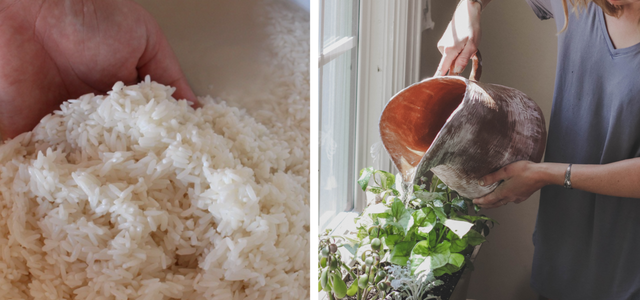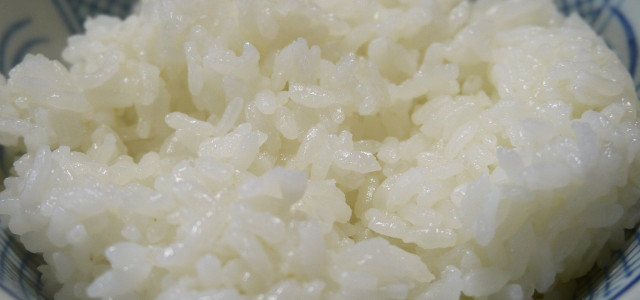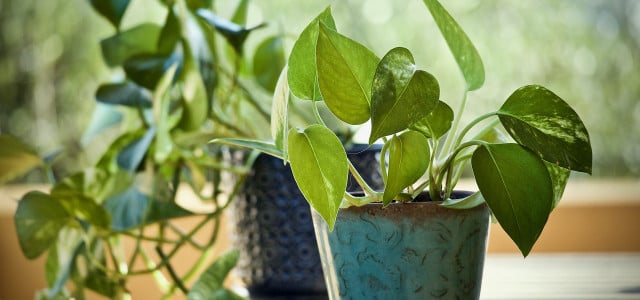You’ve been flushing away this natural, eco-friendly and cost-free fertilizer your entire life! Learn how to use rice water for plants to increase growth and yield.
Rice fans know that for the tastiest results, their favorite grain must be carefully rinsed before cooking. The most typical recommendation is to rinse several times until the water runs clean, though you should preferably soak rice overnight for the fluffiest, least sticky result.
When you wash your rice, stop pouring the water down the drain — you can use it to water your indoor plants and garden. Here is everything you need to know about using rice water for plants.
What’s Special About Rice Water?
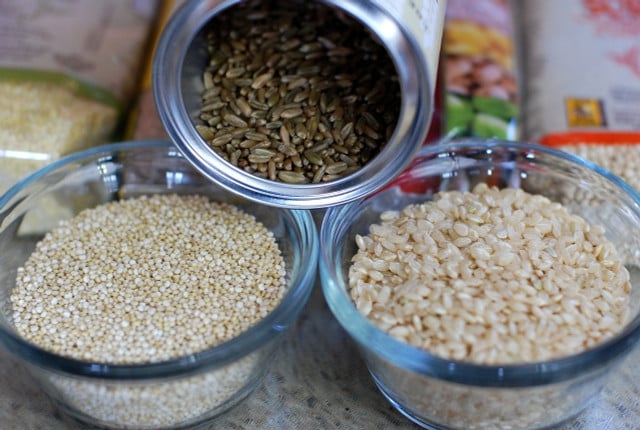
Rice water is exactly what it sounds like — that white, murky water you get after rinsing or soaking rice in it. To obtain rice water, you don’t need to do anything but drain your rice and collect the water instead of throwing it away. Rice water is known for its incredible benefits, so don’t be throwing it away!
There are many different types of rice, and all of them contain a variety of nutrients such as vitamins B, C and E, potassium, magnesium, iron, calcium, selenium, phosphorus, amino acids and much more. Rice water contains a portion of the vitamins and minerals found in the grain itself, and it’s also high in starch.
According to research, rice can lose up to 26% calcium, 30% crude fiber, 41% potassium, 47% phosphorus, 47% iron, 65% crude fat and 70% magnesium while washing. As a result, there are fewer nutrients in the rice we eat — but it also means that the leached nutrients enrich the rice water.
Natural and nutritious, rice water can be used for hair growth and can benefit skin health. On top of that, you can use rice water for plants to promote their growth and healthy development.
Using Rice Water for Plants
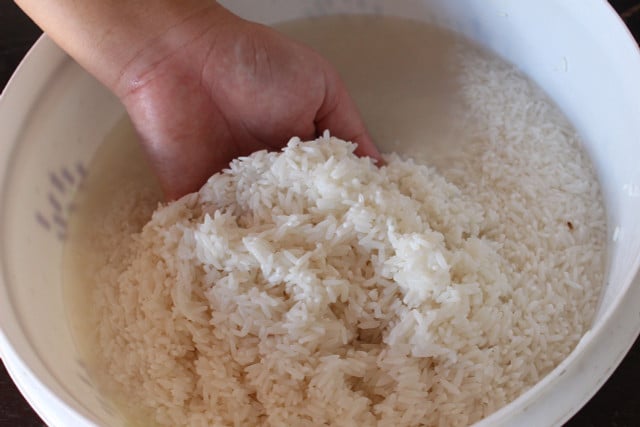


Who wouldn’t want to have natural, organic and 100% free fertilizer for their plants? According to the above-mentioned research, rice water can increase the growth of vegetables such as spinach, pak choy, lettuce, mustard, tomato and eggplant.
In another study, it was used to hydrate certain garlic plants, while tap water was used on others. The outcome was clear: plants grew and developed far more quickly when irrigated with rice water.
Another group of researchers compared the growth of okra plants treated with rice water versus artificial fertilizer. They concluded that both groups of plants developed reasonably similarly. It means that in some cases, rice water can fertilize plants just as well as artificial fertilizers and can serve as an organic alternative.
Here is how you can use rice water for plant growth:
For Foliage Growth
- Fill a clean spray bottle with rice water.
- Mist the plant from the top and undersides of the leaves.
- Clean the bottle to prevent bacteria growth.
Using Rice Water for Plants
- Fill a deep container with rice water.
- Place a plant in the container and let it sit for 15–20 minutes.
- Make sure the water has been absorbed into the soil before removing the pot.
Bottom watering is recommended when using rice water, but you can also pour it around the plant base as usual. Use rice water once every 2–3 weeks as an alternative to clean water.
Recommended reading: The Best Fertilizer for Indoor Plants and When to Use It
Fermented Rice Water for Plants
You can also use fermented rice water as a natural pesticide to keep away fruit flies, flea beetles, aphids and other insects.
Here is how you make fermented rice water at home:
- Cook rice and place it in a glass container.
- Add clean water to cover the rice.
- Cover the container with a clean cloth and place it in a dark place for 7–14 days.
Once the liquid has fermented, you can dilute it to half strength, pour it into a spray bottle, and mist it on plants as required.
Can Rice Water Harm Your Plants?
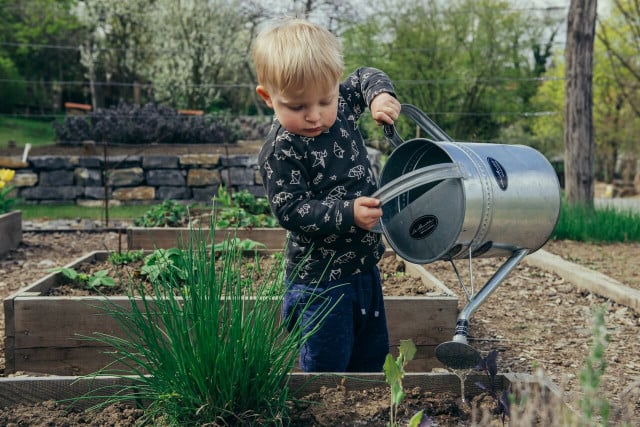


If rice water truly was the ideal organic fertilizer, there wouldn’t be a need to buy anything else. We would only need to save the rice water after rinsing and use it as an endless source of cost-free fertilizer. If something sounds too good to be true, it probably is. Using rice water for plants has its limitations and risks that you need to be aware of.
First of all, preserving rice water could be tricky. It doesn’t contain any preservatives and can go bad quickly. You can keep it in a fridge for five to seven days, but you’d need to warm it up to room temperature before watering plants.
Several studies have shown the advantages of rice water for plant growth, but there’s still not enough research to conclude that it can completely replace traditional plant feed. Moreover, rice water can even be harmful in some cases.
Risks of Using Rice Water for Plants:
- A high amount of starch in rice water can harden the soil.
- Rice water can attract harmful insects.
- Rice water ferments in the soil, potentially causing harmful bacteria to grow.
- Rice water in the soil might cause an unpleasant odor.
Without a doubt, most plants can benefit from being watered with rice water. But make sure to use it in moderation and alternate with clean water and fertilizers your plants need.
Read more:
- How to Fix Undercooked Rice in Just a Few Minutes
- DIY Ollas With Pictures and 2 Self-Watering Alternatives
- How to Start a Garden Step-by-Step: A Guide for Green Thumbs in Training
Do you like this post?






